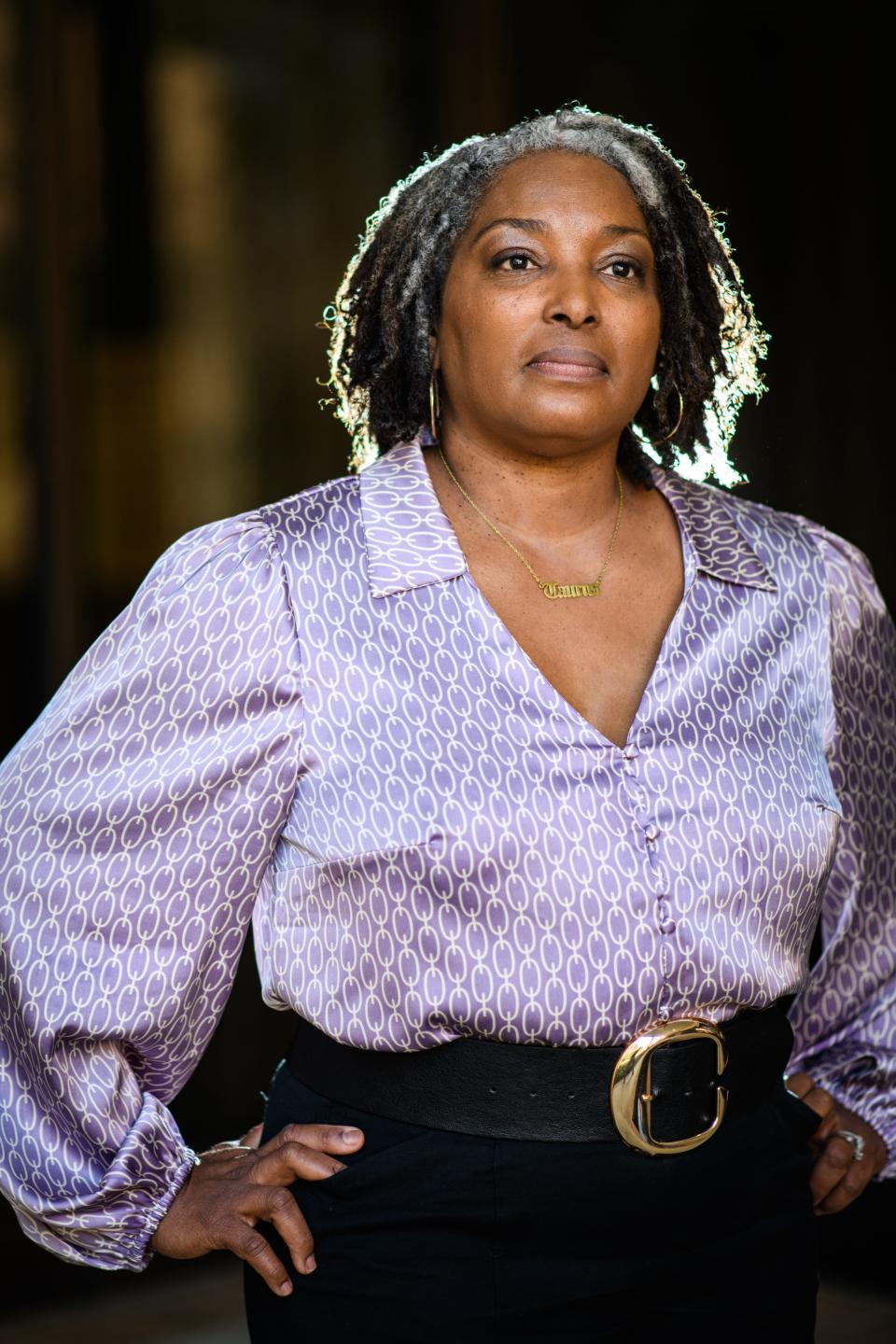'We're almost in a crisis': Fayetteville doctor shortage leaves pregnant mothers in the lurch
- Oops!Something went wrong.Please try again later.
As clinics close their doors and physicians limit services, women in Cumberland County and the surrounding areas are struggling to get the maternal health care they need, local experts say.
At least two women’s health clinics in Fayetteville closed in 2022 and last year another clinic stopped providing pregnancy care. Nearby, Dunn saw the closure of a women’s clinic in 2022 and the city’s hospital stopped delivery and labor services last year.
Maternity wards across the nation are shuttering, citing staffing shortages, financial distress, low reimbursements from Medicaid and a declining demand for maternal services due to low birth rates, the Associated Press reported in September.
Local moms-to-be are feeling the effects, said Angela Tatum Malloy, founder of nonprofit clinic Momma’s Village.
“It’s getting harder and harder for women to get their first OB-GYN appointment,” she said last week.
Expectant mothers in Fayetteville were once able to see an OB-GYN within two or three weeks, Malloy said, but wait times are now up to two months or longer.

Related: Meet the Fayetteville doula fighting to improve Black maternal health, infant mortality rates
Cumberland County Commissioner Glenn Adams said that Cape Fear Valley Medical Center and the health department’s maternal health clinic are overwhelmed and wait times for care are too long.
"They can’t see the OB until the second trimester,” he said last week. “To me, that’s just crazy.”
Dr. Jennifer Green, Cumberland County Health Department director, said long wait times are concerning because early pregnancy appointments are key to keeping mothers and babies healthy.
Addressing substance abuse, diet and supplements, as well as testing for diseases like congenital syphilis early in pregnancy can limit negative health effects, she said last week.
“We want people to get into prenatal care in the first trimester, as quickly as they can,” she said.

Racial disparities in maternal health could be worsened by physician shortage
Black women tend to prefer Black doctors, and with a limited and shrinking number of Black OB-GYNs in Fayetteville, Black women are particularly affected by the recent clinic closures, Malloy said.
The current physician shortage and long wait times may have a harsher effect on Black women, Green said, who are between three and four times as likely to die in pregnancy or postpartum as white women in the U.S., according to a 2021 study from the American Journal of Public Health.
“When we have kinks in the chain like this, the individuals that are the most at risk for impacting their health outcomes are Black women, women of color and those that are uninsured, homeless or have substance use disorders,” Green said.

OB-GYN shortage affects women in North Carolina and nationwide
The worsening availability of reproductive care is not unique to the Cumberland County area. According to the nonprofit nonpartisan health advocacy group March of Dimes, more than a third of all U.S. counties are maternal care deserts, without a hospital or birth center offering obstetric care and without any obstetric providers.
While Cumberland County is considered to have full maternal health access, of North Carolina’s 100 counties, 21 are maternal care deserts, according to the March of Dimes’ 2023 report. Among those is Bladen County, just south of Cumberland County.
Hoke, Harnett and Sampson counties, which also border Cumberland County, are considered to have low access to maternal health care, meaning fewer than two hospitals or birth centers offer obstetric care and there are fewer than 60 obstetric providers per 10,000 births.
Officials want to recruit more doctors to the Fayetteville area
Officials say that stronger efforts to recruit physicians to the Fayetteville area should be part of a long-term strategy to overcome current shortages.
“We’re going to have to put more money into trying to recruit OB-GYNs into this community,” Adams, the county commissioner, said.

Local residency programs may help bring talent to North Carolina. Most medical residents, or 57.1% who completed residency training from 2011 through 2020, continue to practice in the state where they completed their residencies, according to a 2021 report from the Association of American Medical Colleges.
In the last three years, seven of 11 graduates of Cape Fear Valley Health OB-GYN residency program chose to practice in the Fayetteville area, hospital spokesperson Chaka Jordan said in an email Friday. There are currently 263 resident doctors in training at the hospital, she said.
Bringing Black doctors to Fayetteville could help close the racial gap in health outcomes
Green said that with a 39% Black population, Cumberland County needs to pay particular attention to recruiting Black talent.
“We have a shortage of African American providers,” she said. “Oftentimes, people want a provider that looks like them, that they can relate to and that is culturally competent.”
Research shows that increased levels of Black providers are associated with better health outcomes for Black community members.
Related: Can you work and breastfeed as a new mom in Fayetteville? Advocates, employers take action
A 2023 study led by the U.S. Department of Health and Human Services found that a 10% increase of Black providers in a community’s primary physician workforce was associated with higher life expectancy for Black people by more than 30 days and a 1.2% lower disparity between Black and white mortality rates.
While more Black providers would be a step in the right direction, Malloy said, white doctors can provide competent care for Black mothers, especially with early intervention when it comes to warning signs like high blood pressure readings and missed appointments.
Black doulas can also play an effective role in saving the lives of Black mothers from preventable conditions, Malloy told The Fayetteville Observer in March 2023.
"We're able to be that bridge between the mother and the provider so that there's better communication,” she said.
Nurse practitioners and midwives could help increase access to maternal health care
Current regulations require nurse practitioners and certified nurse midwives to practice with the supervision of a physician, Malloy said, which involves paying expensive monthly fees to doctors.
If such professionals licensed to care for low-risk pregnancies could practice without physician supervision, it would be more financially feasible for those mid-level providers to open their own clinics, which could help increase maternal health care access, Malloy said.
Nurses are lobbying for more freedom. The SAVE Act, a perennial proposal for more autonomy for advanced nurse practitioners, certified nurse midwives, clinical nurse specialists and certified registered nurse anesthetists, was introduced again last year in the state House and Senate, NC Health News reported this month.
A combination of solutions, however, is needed to combat the current state of maternal care, Commissioner Adams said.
"We're almost in a crisis," he said. "The question is, how do we make sure that our folk are getting the care that they need?"
Reporter Taylor Shook can be reached at tshook@gannett.com.
This article originally appeared on The Fayetteville Observer: Pregnant mothers feel the effects of OB-GYN shortage in Fayetteville, NC

